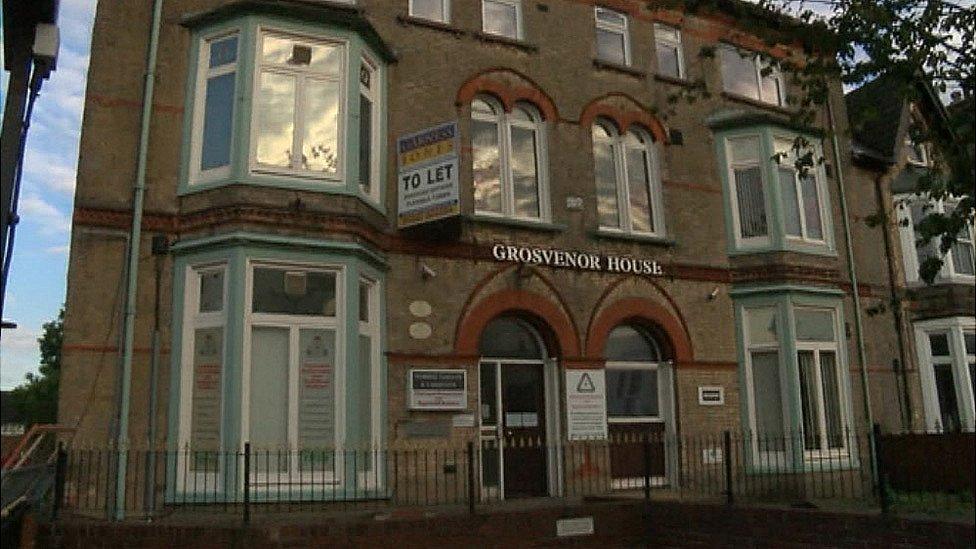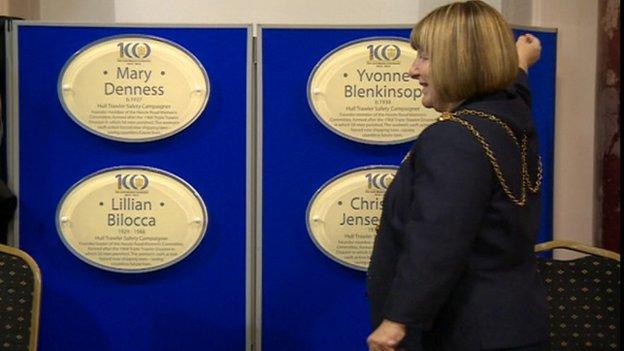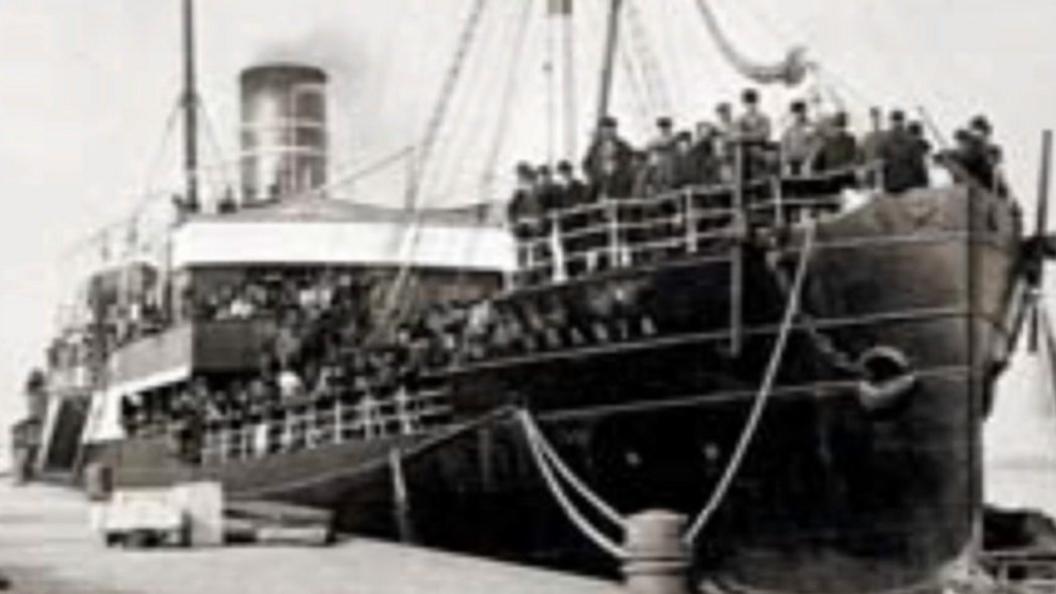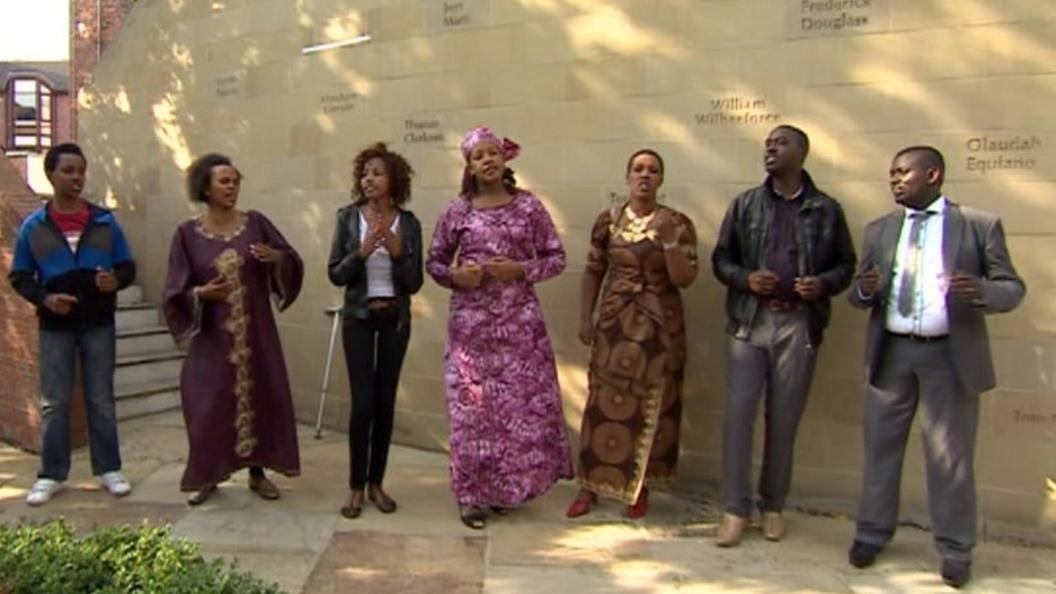Plaques honour Hull's medical suffrage campaigners
- Published

The two doctors shared a house on Beverley Road
Plaques are to be unveiled on the home of two doctors who played a key role in the campaign to win the vote for women.
Dr Mary Murdoch, Hull's first female GP and her assistant Dr Louisa Martindale, lived together on Beverley Road.
The pair were campaigners in the women's movement, with Dr Murdoch founding the city's first branch of the National Union of Women's Suffrage Society in 1904.
The plaques are part of a new trail commemorating prominent Hull residents.
Former Lord Mayor, Labour councillor Mary Glew, said she was honoured to be unveiling the plaques.
"They were also influential in promoting the health and well-being of women and their children in dreadful times of infant mortality and extremely poor availability of medical attention, making a significant difference to families who experienced terrible health inequalities in this area," she said.
The suffrage movement began campaigning for women's votes at the start of the 20th Century.
The suffragettes were born out of the wider suffragist movement, but favoured more direct action, with those including Emmeline Pankhurst carrying out acts of civil disobedience to support their aims.
Women over 30 were eventually given voting rights in 1918, with full equality with men introduced in 1928.
- Published26 May 2015

- Published13 May 2014

- Published1 October 2013
